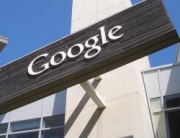One of our clients, who does PPC and SEO with us, asked last week at what point will they be able to pause the PPC campaigns and rely solely on the SEO for traffic and enquiries?
This question is asked frequently by companies that are new to search engine marketing, particularly in verticals that are highly competitive. It can be quite daunting for a small company to suddenly be spending £500, £1000, or even £10,000 per month on a PPC campaign and not know how it will deliver a return.
Even when it is delivering an acceptable return, you still think to yourself that you would rather not pay for the traffic and instead encourage visitors to come through the natural listings and then you don’t need to spend any money (other than for an SEO specialist like us!).
Here are a few tips for managing and interpreting your performance and how to best maximise your PPC and SEO efforts together.
Long tail v short tail
If you are spending on a budget then you certainly don’t want to be bidding for generic keywords on PPC. These will have lower conversion rates that can make your advertising unprofitable. Targeting specific keywords, and keywords at the end of the buying process with higher intent, have higher conversion rates and therefore higher chance of yield. However, it isn’t without it’s difficulty. In some industries, particularly competitive verticals like pensions and annuities, you see a huge increase in CPCs for these higher converting keywords because the competition know that this is where the money is made. So how do you compete with higher CPCs when you are a small business with a limited budget?
Mission and Niche
We always believe that the mission of the business and having a niche specialism will win the day, both on pay per click and in business in general. Take this, for example. We had an enquiry last week for a dating website who wanted to do PPC and SEO. The business owner hadn’t thought about how competitive both of these marketing channels are, particularly for a start up company. We asked about their mission, what distinguishes them from other dating websites? What do they do differently to the other bigger companies that will make people want to change? There wasn’t one.
So effectively, if a PPC campaign was launched his advert would get clicks but wouldn’t convert, because consumers would be drawn to more recognised brands. Therefore think about your niche, there may be an area within your market that has lower competition, higher specialism, that will allow you to distinguish your business from the competition and able to compete for the generic keywords.
Cost Per Click Comparison
Ultimately though it comes down to value for money, what are you getting for your marketing spend. You can compare your cost per click on SEO to your cost per click on PPC and see which is more affordable. Bear in mind this assessment doesn’t take into consideration your return, so if you are spending £500 per month on SEO for 1000 clicks that is 50p per click. If you are spending £500 on PPC and getting 500 clicks then PPC is more expensive at £1 per click. However SEO may convert traffic into sales/enquiries at 1% and PPC at 2% so therefore the ROI is different for each channel. Ultimately each channel should pay for itself.
Buying Process
We also see consumers making multiple searches and clicking on your website multiple times before buying or enquiring. We find consumers clicking on your SEO positions twice, then a day later clicking on two PPC adverts (for different keyword searches), then coming through the site directly by typing in the website address and then converting. The point here is that the exposure on SEO and PPC for different keywords is what has driven the conversion.
Businesses on a tighter budget can balance these marketing investments by using the SEO to target generics that have lower conversion rates but generally higher traffic. This will increase awareness. Then use PPC to target specific, longer tail keywords, that have higher conversion rates. If you are on a really tight budget then targeting specifics or niche keywords is the best route for distinguishing your competitive advantage and differentiation from the competition.
Create PPC Tests to benefit SEO work
For small businesses with a slightly larger budget to play with, the PPC can be a very good testing ground for which SEO keywords convert well and what to put into your SEO strategy, and also a good way of improving the website to convert better.
We think that many customers that are new to PPC see it as a very straight forward marketing channel where you spend £x and you get y number of clicks and with a conversion rate of 3% you will get z back. In theory that will be great, but there are always iterations that need to be made. We have to go back and refine which keywords to target, refine which keywords to have higher and lower bids, refine the adverts to maximise click through rate, optimise the website to increase stickiness, and optimise the buying process on the site to increase conversion rate. All of these things are on going processes, and that is why SEO and PPC are an on-going process and not something you do once.
SMEs v Corporate
A note again that SMEs are competing with corporates for positions on search engines, both on SEO and PPC. Whilst they have the budget to spend they are sometimes more relaxed about ROI on certain niche areas of their businesses or campaigns. This can be used to your advantage, maximising clicks in niche areas where competition is lower and where there is still demand. If you know your market you should be able to think of these lower competition areas.
ROI Analysis
At the end of the day, each marketing channel and spend for each should pay for itself. Ultimately there should never be a point when you turn the PPC off and focus on SEO, because if the PPC spend is profitable and driving a return, then why would you want to stop making a profit? The objective then is how do we make more profit?
If you are unsure about the performance of your SEO and PPC campaigns and want help determining profitability and strategy, then feel free to give us a call. We provide no obligation advice.









